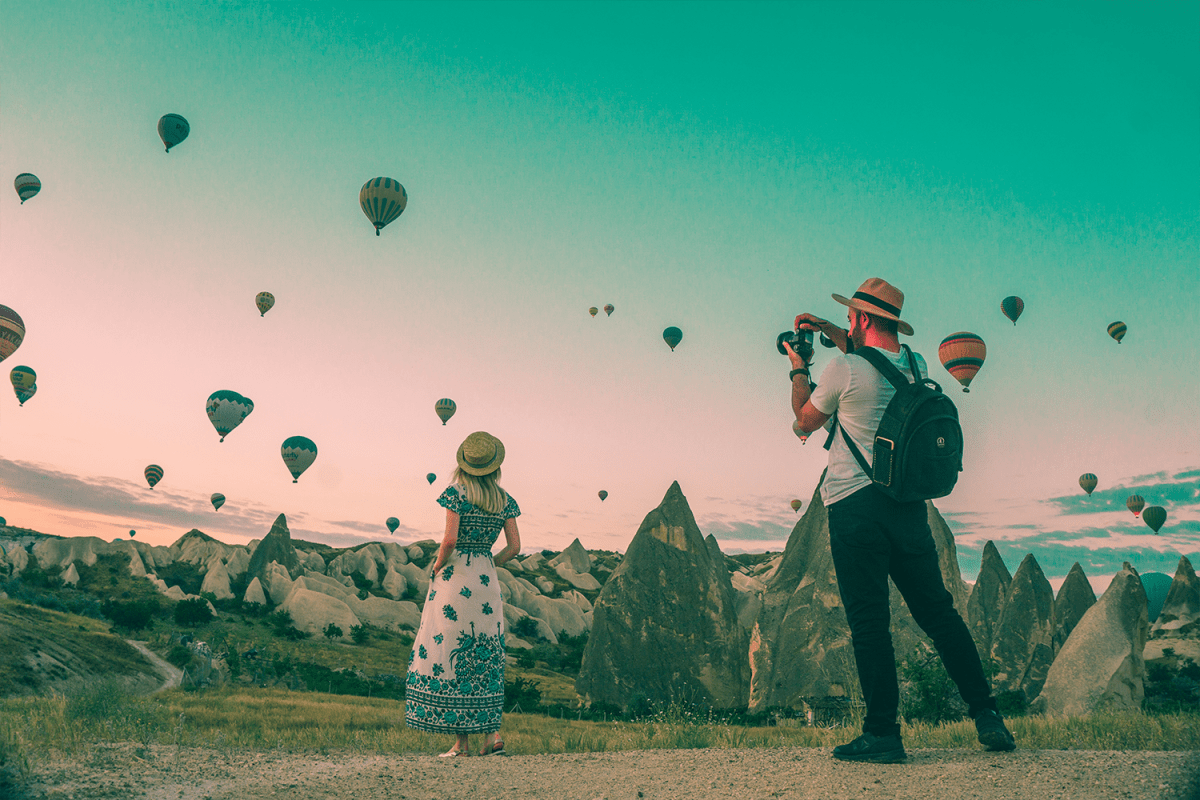The Rise of Influencer-Led Travel
Influencer-led travel is experiencing a surge in popularity. These group trips, often organized by content creators in collaboration with companies like TrovaTrip and Plotpackers, are gaining traction. The concept is straightforward: influencers design an itinerary, promote it to their followers, and sell spots on the trip. Alongside them, the influencer themselves joins the journey.
These trips are marketed as opportunities for community building, connection, and exclusive access to unique experiences. However, they also serve as another avenue for monetization within the influencer economy. This trend isn’t new; travel influencers have been rising in influence over the past decade, carving out a significant presence in the industry, especially among Gen Z. It’s understandable why young travelers would look to these figures for guidance, given their upbringing in a digital world shaped by social media and online personalities.
The Influence of Social Media on Travel Choices
As this generation moves into adulthood and begins planning their dream vacations, it makes sense that they would turn to the voices they’ve followed online. Trusting these influencers enough to spend real money on trips is a natural progression. However, there are concerns about the authenticity and responsibility of many influencers. Their tendencies can extend to these group trips, raising questions about their intentions and impact.
A recent example involved influencer Molly Thompson leading a 16-person trip to Bali in July 2024, charging £1,410 (about $1,890) per person. While I don’t know much about Thompson personally, it’s worth noting that Bali was already struggling with overtourism at the time. A surge in both international and domestic visitors was placing a heavy burden on the island’s infrastructure, natural resources, and local culture—issues that are well-documented within the travel industry.
Sustainability vs. Monetization
There’s nothing inherently wrong with organizing group trips. Regenerative tourism, which focuses on leaving a destination better than it was found, is becoming more popular. In theory, someone like Thompson could be positioned to support this movement. However, according to reports, her trip included activities such as snorkeling, temple tours, and visits to sacred monkey forests, all designed for maximum photo opportunities. This doesn’t align with the principles of sustainability.
Research suggests that influencers passionate about environmental issues can encourage their audiences to travel more responsibly. A study from Penn State’s School of Hospitality Management found that influencers can play a role in promoting pro-environmental behavior. However, this doesn’t seem to be the primary focus of these influencer-led trips. From an observer’s perspective, the main goal appears to be content creation and financial gain.
Personal Reflections on Responsible Travel
I’ve visited over-touristed destinations and posted plenty of photos of myself. However, I strive to be mindful of my impact and where my money goes. When booking a tour or traveling with a guide, I conduct thorough research. If my spending benefits someone else, I want it to contribute positively to the location I’m visiting.
For me, influencer-led travel feels like it could exacerbate the problem of overtourism. Everyone gets a great photo for social media, but the destination ends up bearing the cost. It’s a delicate balance between sharing experiences and ensuring that travel remains sustainable and respectful of local communities.
Exploring Travel Topics
Travel offers countless opportunities for discovery and learning. Whether it’s traveling with a pet, understanding how many pairs of underwear are needed, or exploring the impact of camera phones on the viewing experience, each journey brings new insights. Small group tours can also change perspectives on solo travel, offering a blend of independence and camaraderie.
As the travel landscape continues to evolve, it’s essential to consider the broader implications of our choices. Supporting responsible tourism and being aware of the impact of our actions can help preserve the beauty and integrity of the places we visit.



